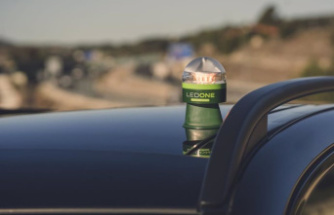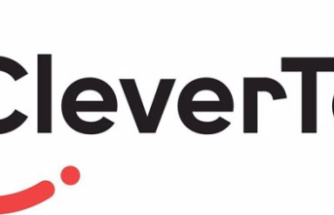The GLS Bank has examined the climate balance of your investment business. The result is that 1.5 degrees is not feasible. However, the calculation has a hook.
wind Park in Brandenburg. The GLS offers climate-friendly plants photo: Patrick Pleul/dpa
BOCHUM taz | As the first Bank in Germany, the social-ecological GLS promises, with its shops and credit the Paris climate awarding protection to be able to target a global warming of a maximum of 1.5 degrees to adhere to. By the Wuppertal Institute for climate, environment, energy, and the Frankfurt climate-Startup "right. based on science,“ the Bank for the first time, the global warming potential of 98.6 per cent of the companies to calculate the climate Fund of the GLS holds shares and securities.
Then have the business of the Fund up to 31. July 2019 in carbon dioxide Equivalents from 13.179 tons emitted. In the Equivalents, but also extremely climate-damaging gases such as methane, whose greenhouse effect is 28 Times higher than that of carbon dioxide.
This means that: "If the entire global economy would act like the companies in our Fund, would be the Paris climate target of a maximum warming of 1.5 degrees to reach," said GLS-Chair Aysel Osmanoglu at the annual press conference of the Bank on Monday in Bochum, Germany. Across all business areas of the credit institution with climate-attributed consequences of 1.4 degrees warming by the community of States to limit to two degrees will be sought. It is feared, however, that the Planet could heat up without massive cuts to 4 degrees and more.
However, This result is based on estimates. Because the accounting, which had been announced by the GLS already in 2019, is extremely time-consuming examination of the entire value chain, not only to the Bank itself, but all the companies to which loans were awarded would have to be. It must be considered not only the direct emissions of the borrower, but also the greenhouse effect of the purchased precursors, and the climate consequences of the use of the manufactured goods.
In the case of a company for home insulation, for example, would, therefore, not only the negative CO2 emissions in the production of the insulating material itself, but also the raw materials considered. Positive is the declining energy requirements of better insulated houses would be measured against.
"We also awarded loans to many smaller businesses, such as on ecological farms," explains Laura Mervelskemper that operates at the GLS as a speaker for impact, transparency and sustainability, the difficulties of the companies, sharp of accounting: "And from these smaller companies, many have not the exact carbon footprint."
Realistic 1.4 degrees is likely to be the target of the GLS yet: founded in 1974, The Bank is relying heavily on a low-carbon economy, investing in the fields of climate-friendly mobility, sustainable Building and renewable energies, which account for about a third of the loan portfolio. In comparison to other German companies, the Bank is so shiny. The calculations, the "right show. based on science“ in November has presented.
Then would warm the world by 2050 13,82 degree, if all companies operated more as a host, such as the brown coal Romer RWE hide today – even if the Essen group adhered to the objectives of its self-imposed climate, would it still be 9.5 degrees. In the financial sector, Deutsche Bank is for a greenhouse effect of 2.8 degrees – and that is not likely to change. After all, The climate change itself massively taken by the insurer Allianz could push the impact of its business today is 3.2 degree of compliance with the self-imposed climate targets in the Paris-compatible 1.5 degrees.
In the case of the balance sheet press conference in Bochum GLS-Executive-Board spokesman Thomas Jorberg advertised therefore, as in previous years, impressive for a massive investment in climate-friendly enterprises, "Economically, we did a good job – but it's burning everywhere," said the 63-Year-old. Shifted to the longer of the "transformation process" towards a low-carbon economy is going, the more "disruptive and expensive", he lost a lot of jobs.
at Least theoretically, Jorbergs reminders seem to be, in the meantime, also in the case of the giants of the financial industry arrived. Even Larry Fink, the chief of the seven-trillion-Dollar financial investors, Blackrock has warned, in mid-January, the markets would have to be faster "to respond to the significant impact of global warming on economic growth and prosperity". To date, Blackrock holds interests in Oil -, coal - and Gaskonzernen in the value of 87 billion dollars. Fink has announced that, by 2025, money from companies to deduct more than a quarter of their sales from the coal production earn.
Jorbergs Bank does not have to fear such a Disruption, however. The social-ecological GLS – the acronym stands for "community for lending and Give" – has for years been on a growth course. Alone in the fiscal year, the number of Clients grew to 24,000 on now to 242,000. The number of members of the cooperatively organized Bank increased by a quarter of 52.200 to 65.300. Also, the balance sheet total climbed by 18 percent to more than 6.7 billion euros on the reporting date of 31. December 2019. Around 13 percent of the loans: Just under 3.8 billion euros, the Bank, the sustainable economy are increased.
Date Of Update: 05 February 2020, 14:00












